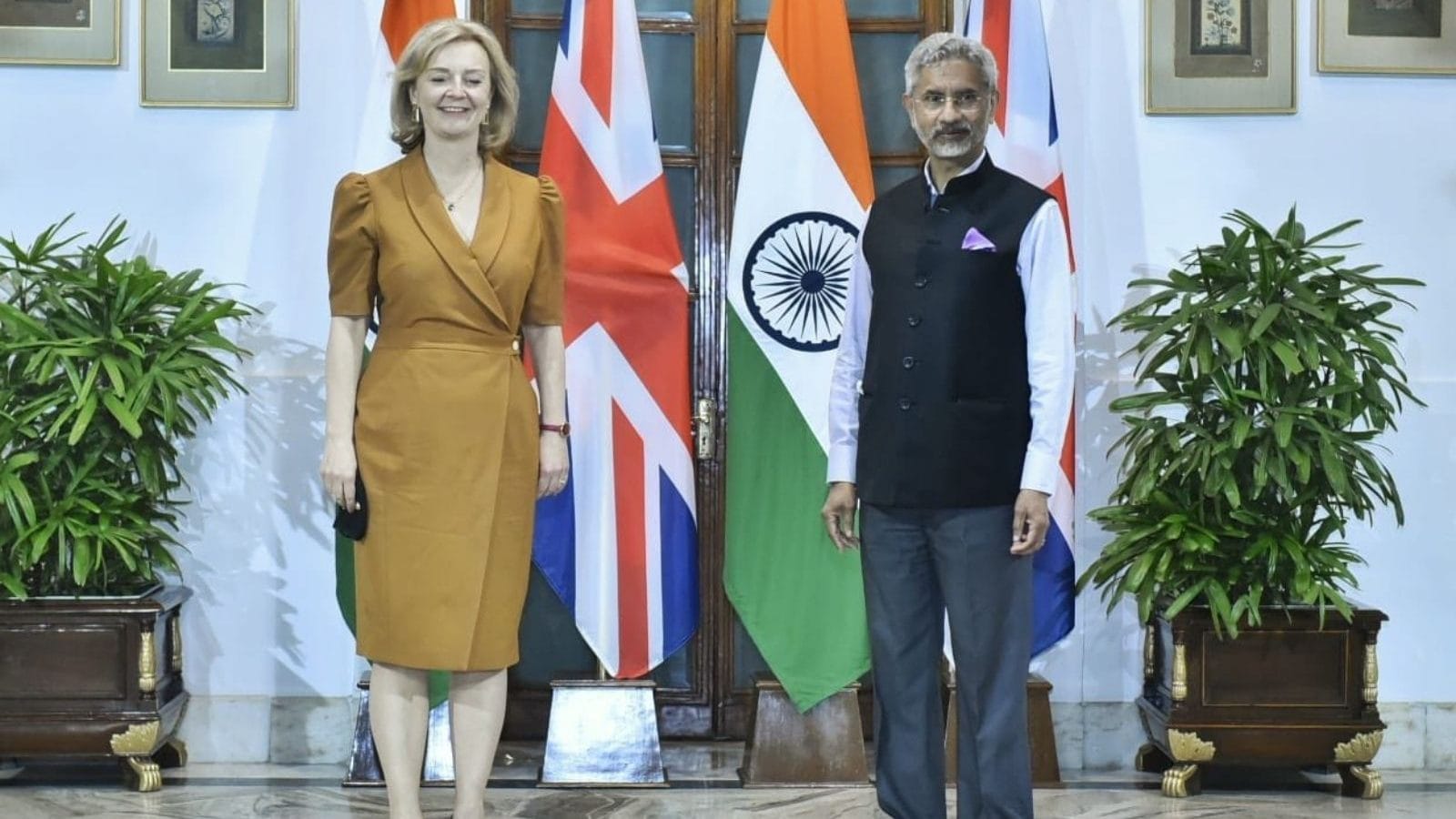A Dialogue of The ‘Deaf’: India Fencing with UK over Ukraine
British foreign secretary Liz Truss’s meeting with her Russian counterpart Sergei Lavrov a month back ended in plain speech not often heard at diplomatic meetings or after. Talking to her was “like talking to a deaf person,” he said at a joint press conference with her in Moscow as she stood to his side, and she would of course have heard what he said. A similar risk surfaces ahead at her scheduled meeting with India’s external affairs minister S Jaishankar this week. Present diplomatic positions over Ukraine suggest that each may find the other at least a little deaf.
Present positions suggest also that the deafness problem would be much lessened at meetings expected soon between Jaishankar and Lavrov who is likely to visit India soon after Truss. And there, any perceived lack of deafness could emerge as the problem. Joint warmth at the second meeting could magnify an ambiguity over Ukraine that India is pushing to downplay.
Smokescreen
Truss and Jaishankar are set to spar over Ukraine, never mind the usual official smokescreen that they will hold consultations on “bilateral, regional and global issues of mutual interest”. The external affairs ministry declared: “The visit will also serve to further deepen our partnership across various sectors such as trade and investment, science, technology and innovation, defence and security, climate cooperation, education and digital communications.”
ALSO READ | Demonising India over Ukraine Won’t Help, West Needs Delhi by its Side in Indo-Pacific Contest
The MEA is understandably keen to cloak the thorny disagreement over Ukraine with other areas of agreement that at present seem inconsequential.
Truss is expected to confront Jaishankar with a clear mandate from encompassing the positions of the US and Europe, the ‘West’ as commonly called, that what they see as India’s fence-sitting over Ukraine is not sustainable. And that if this position were to continue, India should expect to pay a price for it that it may find heavy.
Beneath the likely diplomatic couching – foreign ministers don’t often address joint press conferences where one calls the other deaf – the ‘Western’ position is as former US president George Bush declared ahead of the Iraq war: if you’re not with us, you’re against us. He left no room for a fence, and Western leaders of today are not inclined to either.
New Delhi has been left diplomatically shaken by US President Joe Biden’s dart that India’s position on the Russian invasion of Ukraine is “somewhat shaky”. He named India as the odd one out from the Quad, a grouping also comprising the US, Australia and Japan.
Truss is the new weight being brought to bear on India in that pressure, following on from the visits of foreign ministers from Austria and Greece, and that of the US Under Secretary of State for Political Affairs Victoria Nuland.
Pressure
Prime Minister Boris Johnson called Indian Prime Minister Narendra Modi last week to seek to persuade him to take a stronger position against Russian President Vladimir Putin than India has thus far. The visit from Truss now is due to take the British position beyond persuasion into pressure. A cross-party delegation of British parliamentarians to have been led by Speaker Sir Lindsay Hoyle was reported earlier to have called off its visit to India. That decision was a consequence clearly of India’s position over Ukraine.
The new pressure seeks to limit at the least agreements India is firming up with Russia that would blunt the effect of Western sanctions. India is considering a rupee-rouble trading deal that bypasses the dollar and other international payment arrangements that many Western nations are seeking to squeeze Russia out of. That puts India in the company of China similarly setting up direct alternative routes to keep trade with Russia going.
ALSO READ | What Could be Endgame for Russia-Ukraine War? News18 Takes a Dive Into 5 Possible Scenarios
India clearly has firm national interests in mind that are driving it to take a softer position with Russia than the West would like it to. That includes, and has historically, close defence ties. These have been firmed up with invaluable intelligence support on vital fronts. Not least, India is negotiating a supply of gas and oil with Russia to meet its needs which could limit and potentially reverse soaring energy costs that are doing nothing for the government’s popularity domestically.
Jaishankar has set out a raft of six policy principles over Ukraine that make its displeasure over the Russian invasion clear. Truss will want India to hit Russia with sanctions, not reproach it mildly in words.
Read all the Latest News , Breaking News and IPL 2022 Live Updates here.
For all the latest world News Click Here

